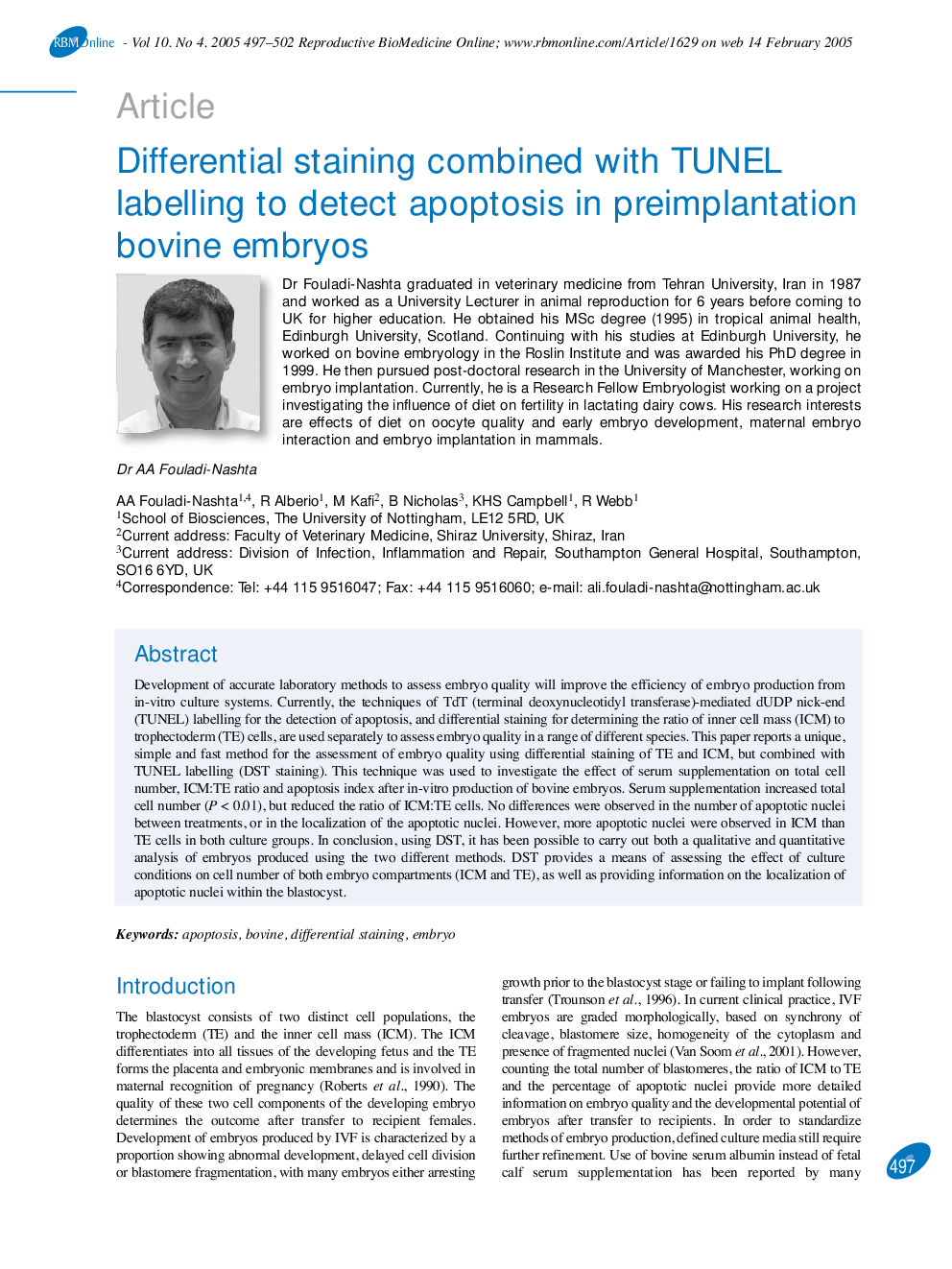| Article ID | Journal | Published Year | Pages | File Type |
|---|---|---|---|---|
| 9334730 | Reproductive BioMedicine Online | 2005 | 6 Pages |
Abstract
Development of accurate laboratory methods to assess embryo quality will improve the efficiency of embryo production from in-vitro culture systems. Currently, the techniques of TdT (terminal deoxynucleotidyl transferase)-mediated dUDP nick-end (TUNEL) labelling for the detection of apoptosis, and differential staining for determining the ratio of inner cell mass (ICM) to trophectoderm (TE) cells, are used separately to assess embryo quality in a range of different species. This paper reports a unique, simple and fast method for the assessment of embryo quality using differential staining of TE and ICM, but combined with TUNEL labelling (DST staining). This technique was used to investigate the effect of serum supplementation on total cell number, ICM:TE ratio and apoptosis index after in-vitro production of bovine embryos. Serum supplementation increased total cell number (P < 0.01), but reduced the ratio of ICM:TE cells. No differences were observed in the number of apoptotic nuclei between treatments, or in the localization of the apoptotic nuclei. However, more apoptotic nuclei were observed in ICM than TE cells in both culture groups. In conclusion, using DST, it has been possible to carry out both a qualitative and quantitative analysis of embryos produced using the two different methods. DST provides a means of assessing the effect of culture conditions on cell number of both embryo compartments (ICM and TE), as well as providing information on the localization of apoptotic nuclei within the blastocyst.
Related Topics
Health Sciences
Medicine and Dentistry
Obstetrics, Gynecology and Women's Health
Authors
AA Fouladi-Nashta, R Alberio, M Kafi, B Nicholas, KHS Campbell, R Webb,
